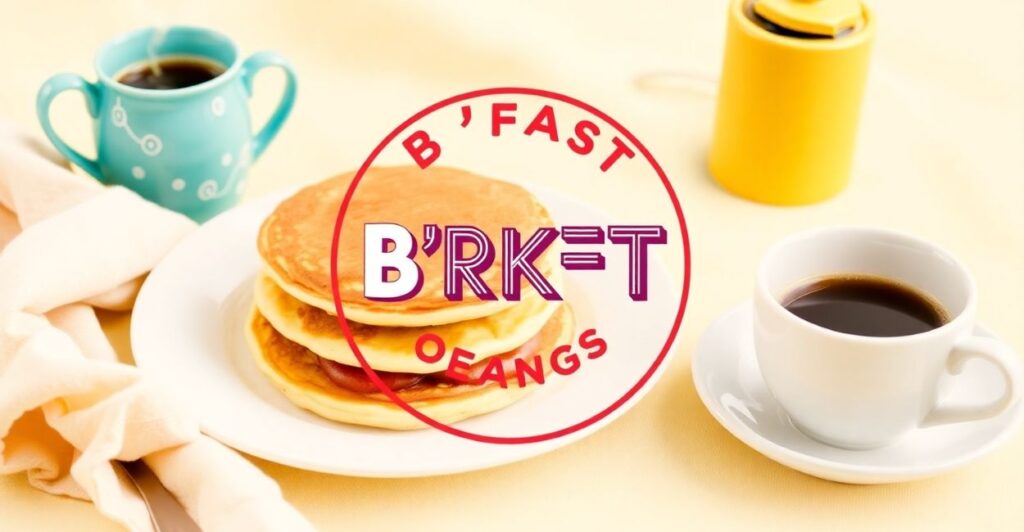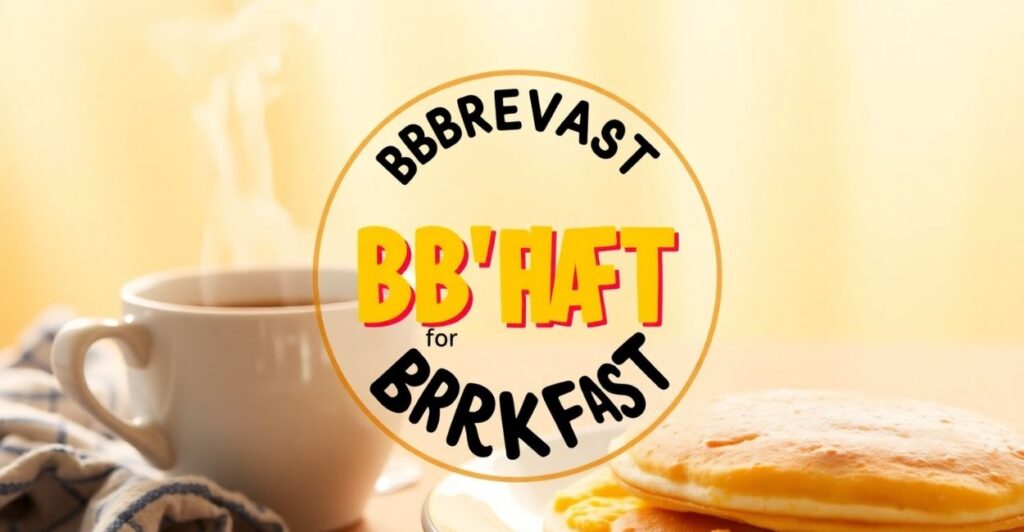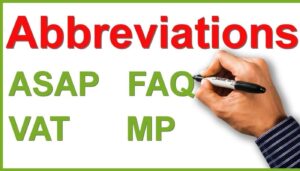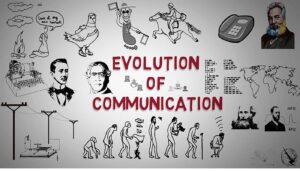Mornings can be hectic, especially when every second counts. In today’s fast-paced world, we often find ourselves looking for ways to save time in our daily routines. One such example? Abbreviating words to get our point across more quickly.
So, have you ever found yourself wondering if there’s a shorthand for “breakfast”? Well, you’re in luck! In this article, we’ll dive into the abbreviation for breakfast, explore its meaning, and offer insights on how and when to use it. Whether you’re jotting down notes or texting a friend, we’ll help you navigate the world of breakfast abbreviations in an easy-to-understand and engaging way.
Let’s explore what the abbreviation for breakfast is, when it’s appropriate to use, and some fun facts about this beloved meal of the day.
1. What is the Abbreviation for Breakfast?
We all know that breakfast is the first meal of the day, typically eaten in the morning after a long period of fasting overnight. But when you’re in a rush or need to write something quickly, is there a shorthand you can use for “breakfast”?
The most common abbreviation for breakfast is “BKF”. It’s a simple, straightforward way to refer to the meal without typing the entire word. You might use “BKF” in a text message, grocery list, or casual conversation. Here are a few examples of how you might use it:
- “What’s on the menu for BKF tomorrow?”
- “Let’s meet for BKF at 8 AM.”
- “Don’t forget to buy eggs for BKF!”
While it’s not as widely used as abbreviations like “app” for “application” or “info” for “information,” “BKF” serves as a convenient way to save time when you’re jotting things down quickly or chatting informally.
2. Is It Really Common to Use “BKF”?
Though you can use “BKF” in casual settings, it’s not something you’ll typically see in formal writing or professional communication. Imagine sending a business email where you casually mention “BKF”—it might come off as unprofessional or unclear.
However, in informal settings, the abbreviation for breakfast works perfectly fine. If you’re texting a friend or making a quick note for yourself, it can save you valuable seconds. But when it comes to formal settings like emails, meetings, or presentations, you should stick with the full word “breakfast.”
3. When to Use the Abbreviation for Breakfast
Understanding the context is key when using “BKF.” Here’s a helpful guide on when it’s appropriate to use the abbreviation:

Casual Settings: Perfect for Shortcuts
- Text Messages: If you’re chatting with a friend and want to meet for breakfast, saying, “Let’s grab BKF at 9 AM” is perfectly fine. It’s a quick way to get the message across without typing out the full word.
- Notes & Grocery Lists: If you’re writing a grocery list or leaving a quick note for yourself, using “BKF” can help you save time. For instance: “Pick up bacon and eggs for BKF tomorrow.”
- Social Media Updates: Sometimes, when you’re updating your friends or followers on social media, using abbreviations like “BKF” can give your post a more relaxed tone. A caption like, “Brunch and BKF with my besties!” fits the informal vibe of platforms like Instagram.
Formal Settings: Stick with “Breakfast”
- Professional Communication: In formal emails, reports, or academic writing, it’s important to use the full word “breakfast.” Abbreviations like “BKF” can be confusing and give the impression that you’re not taking the communication seriously.
- Business & Client Meetings: If you’re setting up a meeting or discussing the logistics of an event, always opt for the complete word. “Breakfast meeting at 8 AM” is clear, professional, and doesn’t require any shortcuts.
So, while “BKF” might be a time-saver, it’s crucial to assess the situation and choose your words carefully based on the context.
4. Other Abbreviations and Synonyms for Breakfast
If “BKF” feels a bit too informal for your taste, or you want to mix things up, there are other alternatives you can use to talk about breakfast.

Common Synonyms for Breakfast
- Morning Meal: If you want to be a little more descriptive or formal, you can refer to breakfast as the “morning meal.” It’s simple and still conveys the idea that you’re referring to the first meal of the day.
- Brunch: For those occasions when breakfast turns into something more substantial, like around mid-morning or late morning, “brunch” is often the go-to term. It blends breakfast and lunch, making it ideal for a more leisurely meal.
- First Meal: A more straightforward alternative, the term “first meal” works well when you want to emphasize the fact that breakfast is the initial meal of the day.
- AM Snack: For a lighter breakfast, like a quick bite before heading out, calling it an “AM snack” can be a fun twist.
Each of these terms provides a unique nuance to the idea of breakfast, allowing you to tailor your language to fit the situation.
5. The History Behind the Word “Breakfast”
The word “breakfast” is rooted in the tradition of breaking the fast from the night before. Historically, it’s been the first meal people eat after waking up. The term itself originated from Middle English, with “break” meaning to end something and “fast” referring to the period of time without eating.
Interestingly, breakfast as a concept has evolved over the centuries. In earlier times, people often ate a hearty meal to provide sustenance for a long day of work. Today, however, breakfast can range from a quick bowl of cereal to a more elaborate spread of eggs, toast, and coffee.
6. How to Pronounce “Breakfast”
For non-native English speakers, the pronunciation of “breakfast” might be a bit tricky. It’s pronounced “BREK-fuhst”, where the “a” is soft, and the second syllable sounds like “first.” The word flows quickly, and the “a” tends to blend into the rest of the word.
It might be helpful to break the word down into two parts: “break” + “fast.” Practice saying it slowly, and soon you’ll feel more comfortable with the word!
7. The Importance of Breakfast in Our Daily Routine
Whether you abbreviate it as “BKF” or take the time to write it out in full, there’s no denying the importance of breakfast in our daily lives. Here are a few reasons why breakfast should never be skipped:
- Boosts Energy: Breakfast is a great way to kickstart your metabolism and fuel your body after a long night of rest.
- Improves Focus: Eating breakfast can help improve your concentration and productivity throughout the morning. It provides the necessary nutrients your brain needs to function effectively.
- Supports Healthy Eating Habits: A healthy breakfast can set the tone for the rest of your day, encouraging better food choices and helping you avoid overeating later on.
So, while it’s fun to abbreviate breakfast to “BKF,” don’t forget the importance of this essential meal!
8. When to Skip the Abbreviation and Stick to “Breakfast”
While using “BKF” is convenient, there are instances when it’s better to spell out the word “breakfast” to avoid confusion. Here are some cases to consider:
- Emails to Superiors or Clients: In a professional setting, where clarity and professionalism are key, avoid abbreviations like “BKF.”
- Formal Writing and Documents: Whether you’re writing an article, academic paper, or proposal, always use the full term “breakfast.” It ensures your writing remains clear and formal.
- Official Invitations or Events: If you’re inviting someone to an official breakfast event or meeting, stick with the word “breakfast” to convey professionalism.
Final Words
In the end, the abbreviation “BKF” for breakfast is a great time-saver in informal settings, but it’s important to remember when to use it and when to stick with the full word. Context is everything, and understanding when to use “BKF” will help you communicate effectively without losing professionalism.
Whether you’re sending a quick text to a friend, making a grocery list, or discussing the importance of breakfast, the key takeaway is this: abbreviations can be fun and helpful, but they should be used thoughtfully to ensure your message is clear and appropriate for the situation. So, next time you’re in a rush and need to jot down “breakfast” quickly, go ahead and use “BKF”—just remember to keep the context in mind. Happy breakfasting!









